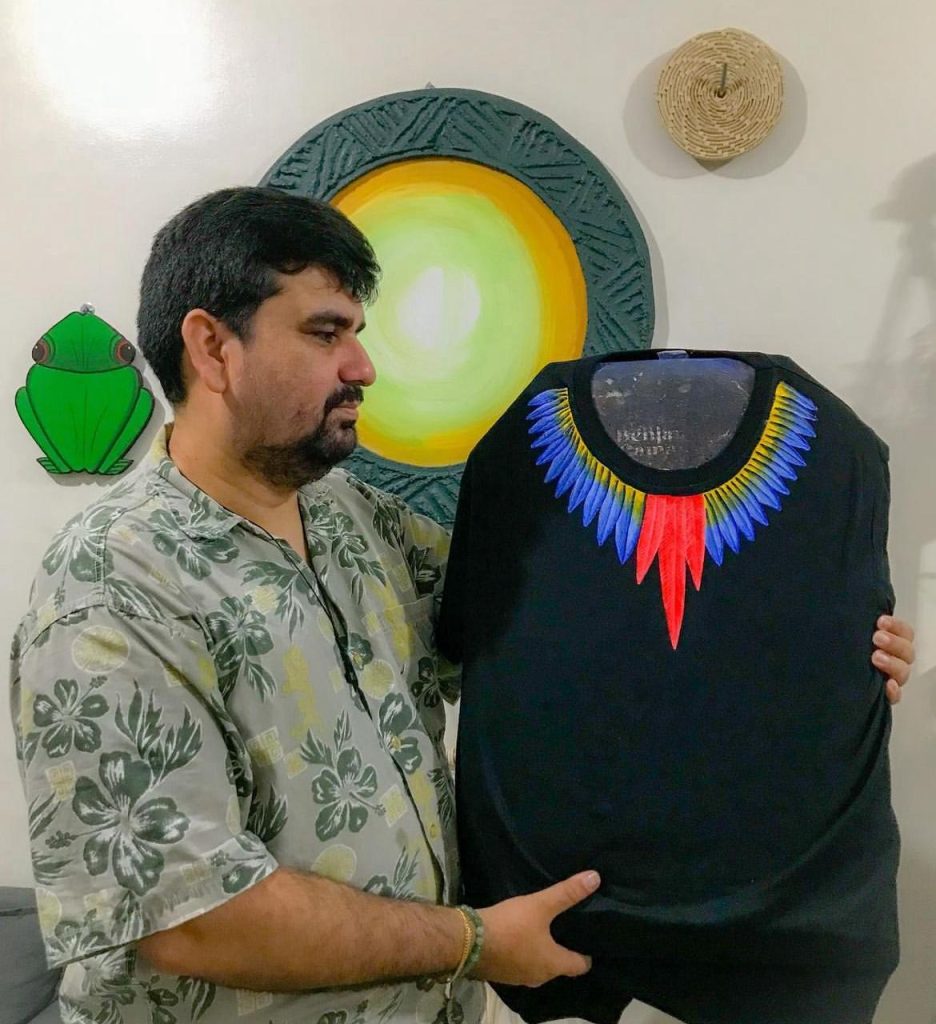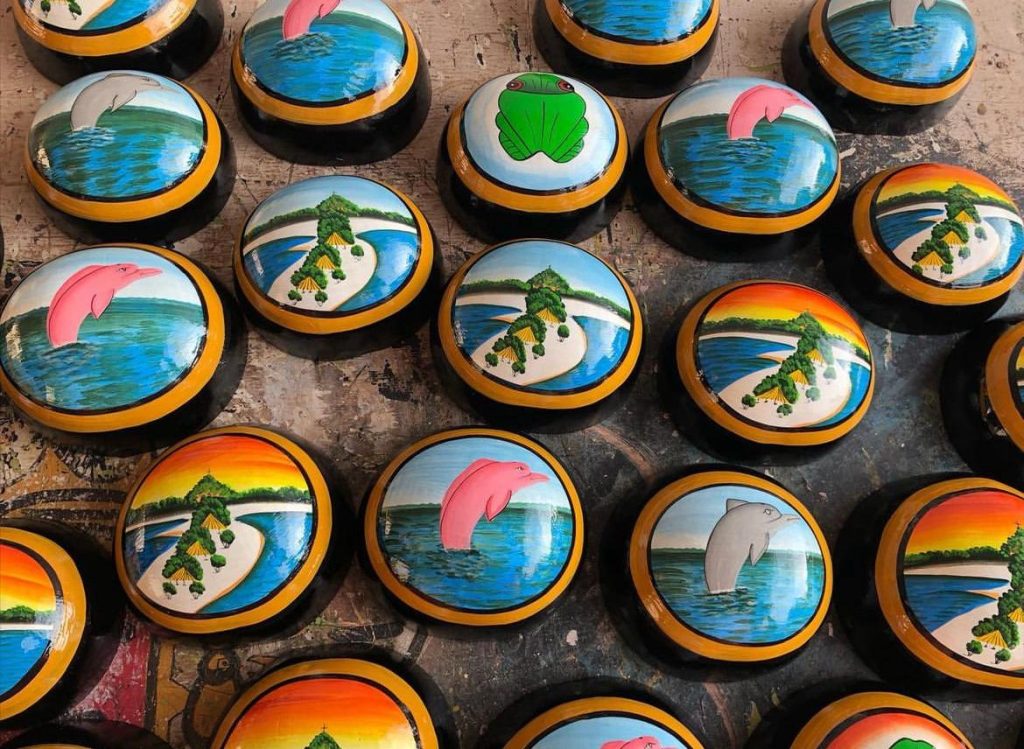Bioeconomy in the Amazon: entrepreneurs balance development and preservation
[ad_1]
There is a growing and urgent movement for economic transformation in the states that make up the Legal Amazon, where the bioeconomy is emerging as the protagonist of a sustainable revolution. In a context where environmental preservation is as crucial as economic development, this alternative appears as an innovative response, seeking to reconcile growth and conservation.
Disruptive solutions for a more sustainable economy can transcend the economic impact on the market, making it possible to generate development for around 750,000 families from traditional communities, who have a subsistence relationship with nature, according to a study by the National Institute of Colonization and Agrarian Reform (Incra), Embrapa and other institutions, based on data from the Brazilian Institute of Geography and Statistics (IBGE).
In this survey, Embrapa conceptualizes bioeconomy as a type of economy that develops based on the principles of sustainability, aiming to use biodiversity resources in line with technological and traditional knowledge.
Understanding Amazonian realities enriches the discussion about the Amazon. Economist Denise Kassama pointed out that the bioeconomy allows there to be a way to respect the limits of forests and adapt production to make them sustainable.
“What people around the world discuss about the Amazon is that the caboclo and riverside people need to survive, but it is very easy to talk about preservation without taking into account an entire population that needs to earn a living. But yes, there is room for this, I believe that a global market is opening up for these sustainable products and the bioeconomy”,
explained.
However, Kassama highlighted that a major impasse in establishing this economic model is related to logistical issues, due to the complexity of geographic locations. Based on public policies and incentives from public authorities, the bioeconomy can open up opportunities for family farming sectors, cooperatives for the extraction and management of Amazonian items, such as some species of fish, handicrafts, biofuel and other forms.
Inclusion in this scenario is essential for successful development aligned with sustainable guidelines. The innovation and Bioeconomy manager at the Amazonas Institute for Conservation and Sustainable Development (IDESAM) with a focus on public policy Priority Bioeconomy Program (PPBio), Paulo Simonetti, bioeconomy opens up space for communities responsible for keeping the forest standing.
“As these communities, within the territory, manage to have this productive inclusion, through their associations or cooperatives, they are able to generate greater income and have their work recognized. This chain also generates opportunities around the territory such as transportation, circulation of money in municipalities through access to goods and services that these workers now have”,
clarified.
Idesam received recognition with the award for best Non-Governmental Organization (NGO) in the Environment segment in 2023. The institution has initiatives to contribute and promote the development of the local bioeconomy, based on projects aimed at attracting communities, structuring of the production process, as well as carrying out political articulation so that development follows government guidelines.
With a keen eye on local potential, entrepreneurs, researchers and non-governmental organizations join forces to explore alternatives that not only boost the regional economy, but also preserve the region’s unique natural treasures.
Microentrepreneurs find the sustainable use of resources a mechanism that links respect for the environment with a source of income. In some cases, this care is passed down from generation to generation, as is the case with history professor and craftsman from Pará, Marcos Camargo, founder of Ateliê Camargo. Son, nephew and grandson of artists, he grew up around art.
“My family is made up of artists, painters, musicians and writers in the city of Santarém, one of the strong characteristics of the family is the painting on the gourds, which, due to this work, the painted gourds in Santarém, in 2009, were elevated to the category of cultural heritage of an intangible nature of the State of Pará”,
said.

Born in Santarém, Pará, the artisan participated in the Microprojetos da Amazônia Legal competition, when he was awarded the Ararinhas de Santarém project, promoting the painting of gourds, shirts and canvases for low-income young people. The emphasis on Amazonian culture was also part of the international Manaus Feito à Mão catalog, with paintings and crafts.
Ateliê Camargo was founded in 2020, named in honor of Marcos’ father, professor Benjamim Camargo. Over the years, the initiative continues with the family tradition by integrating family members into the team of artisans.
“Today we sell to all states and our production is 100% artisanal, owned and family-owned, and aims to preserve the forest and nature, to promote the bioeconomy in the Amazon more sustainable”,
highlighted.
For the micro-entrepreneur, the non-industrial bioeconomy with an emphasis on the creative and family economy is an option to contribute to the preservation of the forest, reverberating care for the ecosystem, including the fauna, flora and also the residents, who are actively taking care of the environment environment. Despite their fundamental role, these people remain invisible to the media and public policies.

Among the challenges encountered to continue in this segment, Marcos Camargo defines that in addition to craftsmanship, adaptations are also necessary in multifunctions, such as managing social networks and training for sales. Furthermore, decades ago, the sale of products made it possible to purchase food, but currently, with an increasingly globalized and digital world, there was an urgency to also transform the mode of production.
“With the expansion of the means of communication and globalization, we were able to expand our work, and today, we can ship outside the country, so we need to adapt. It’s still a challenge because our production is all family, we don’t have an industry”,
he said.
The appreciation of art by public authorities is also a challenge. “We are not selling a product, but a story. It’s something made by artists from our region,” he declared.
The material used by the Atelier prioritizes the way in which the raw material is captured. Marcos explains that he seeks to purchase items from associations that have authorization from control bodies, in original and riverside communities, proposing to strengthen the local economy. In addition, there is a warning about the closed season, in which some species of fish cannot be sold.
The balance between the demand for economic growth and the preservation of Amazonian biodiversity requires carefully planned approaches. Socio-environmental issues, the rights of local communities and the search for sustainable technologies are an integral part of this constantly evolving narrative.
Read more:
ExpoAmazônia: Innovative solutions for bioeconomy value chains will be presented at the event
Hub strengthens network of solutions for an inclusive bioeconomy in the Amazon
The largest technology and bioeconomy event in the North region will take place in Manaus this month
[ad_2]
Source link




:strip_icc()/s02.video.glbimg.com/x720/12519489.jpg)



